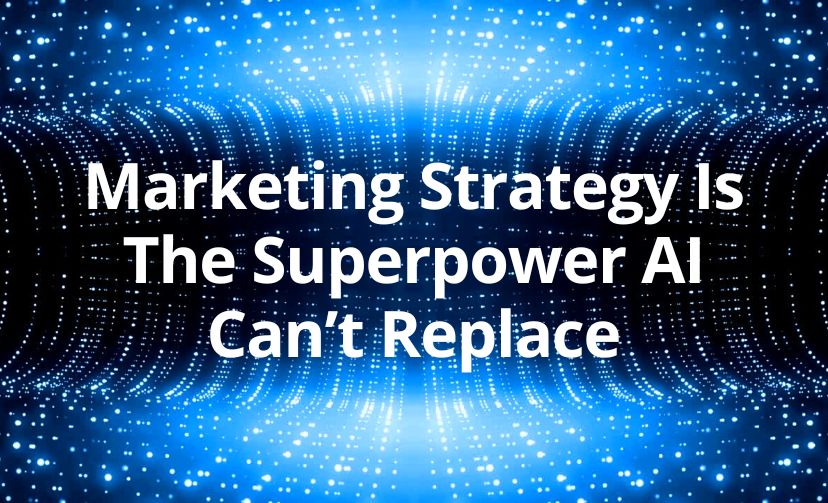The use of artificial intelligence (AI) is changing many industries at a rapid pace, including marketing. With more and more people using AI tools, entrepreneurs are faced with both exciting opportunities and overwhelming choices. Where AI can provide automation, personalization, and data insights, Christine Tolton, CEO of Red Cat Marketing, cautions business owners not to mistake AI for a replacement strategy. You still need a marketing strategy for your business.
“AI is for insight, not shortcuts,” Tolton says. “You need a marketing strategy that guides you how to use these tools. Without that, you’re just throwing technology at the wall and hoping that something sticks.”
The Allure and Limitations of AI
AI offers many promises. The promise of faster content creation, predictive analytics, automated customer interactions, and marketing campaigns that can run themselves. But the danger rises when you assume that AI can think for you.
AI can’t tell you why your brand exists, who your ideal customer is, or how you position yourself against your competitors. That’s the work of marketing strategy. Tolton compares it to flying a plane: “AI without a strategy is like flying without a radar. You might be moving quickly, but you don’t know where you are going.”
How AI Can Support Your Marketing Strategy
Tolton acknowledges that AI is powerful when used correctly. The key is to let marketing strategy lead and use AI to execute with precision.
- AI for insight
AI excels at uncovering what humans might miss. AI is good for pattern recognition, sentiment analysis on social media to trending keyword searches. AI can give users faster and clearer insight into what customers want, but these insights only matter when tied to a clear marketing strategy.
- AI for efficiency
AI handles the repetitive work like sending routine emails, testing ad variations, and pulling reports. This helps free up time so you and your team can focus on high value tasks. “When you automate the repeatable, you free up people for activities that have real impact, like creativity, connections, and relationships,” Tolton says.
- AI to scale
AI allows business owners to deliver customized experiences, targeted offers, and on-demand content at scale. The challenge is ensuring these efforts stay authentic and aligned with your voice. Marketing strategy is what keeps that personal touch intact.
The Risk of Relying on AI Alone
AI amplifies your business foundation. With a strong marketing strategy, it amplifies your business success. Without a strong marketing strategy, AI will amplify missteps and mistakes, by pushing irrelevant and ineffective marketing campaigns faster, messaging that doesn’t resonate with your people, and draining resources.
Human creativity, storytelling, and empathy cannot be automated. “At Red Cat Marketing, we use AI to enhance what we do, but never to replace the human touch,” Tolton explains. “Customers don’t buy from algorithms. They buy from people.”
The Future of Marketing
Christine Tolton sees the future of marketing shaped by AI, but not in the way many expect. Instead of replacing human connection, AI will help brands deliver more personalization and authentic customer experiences. The businesses that thrive will use AI to deepen relationships rather than automate them.
Community-building, she predicts, will sit at the center of marketing, with AI making it faster and more efficient to engage at scale. But for small businesses, AI will act as a powerful equalizer, giving business owners access to insights and capabilities that were once reserved for big brands with big budgets.
The bottom line is that AI certainly has a place in marketing, but it does not replace marketing strategy. Entrepreneurs who pair technology with human creativity, community, and purpose will not only keep up with change, but perhaps hold that competitive edge.
Written by Melissa Houston, Originally Posted on Forbes.com.

